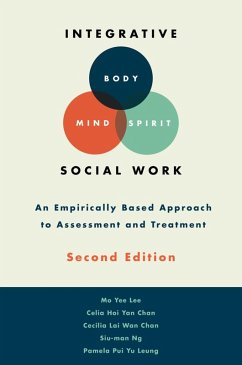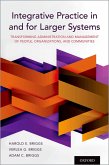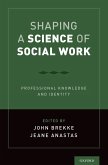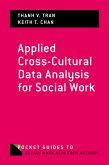Integrative therapy focuses on the mind-body-spirit relationship, recognizes spirituality as a fundamental domain of human existence, acknowledges and utilizes the mind's power as well as the body's, and reaches beyond self-actualization or symptom reduction to broaden a perception of self that connects individuals to a larger sense of themselves and to their communities. When it was published in 2009,
Integrative Body-Mind-Spirit Social Work was the first book to strongly connect Western therapeutic techniques with Eastern philosophy and practices, while also providing a comprehensive and pragmatic agenda for social work, and mental health professionals. This breakthrough text, written by a cast of highly regarded researchers from both Asia and America, presented a holistic, therapeutic approach that ties Eastern philosophy and practical techniques to Western forms of therapy in order to help bring about positive, transformative changes in individuals and families. This second features a major reorganization of Part III: Applications and Treatment Effectiveness, renamed to "Evidence-informed Translational Practice and Evidence." Based on systematic reviews of Integrative body-mind-spirit practices, Part III provides a "resource guide" of different types of integrative practices used in diverse health and mental health conditions. A new companion website includes streaming video clips showing demonstrations of the BMS techniques described in the book and worksheets and client resources/handouts. Here, the authors provide a pragmatic, step-by-step description of assessment and treatment techniques that employ an integrative, holistic perspective. They begin by establishing the conceptual framework of integrative body-mind-spirit social work, then expertly describe, step-by-step, assessment and treatment techniques that utilize integrative and holistic perspectives. Numerous case studies demonstrate the approach in action, such as one with breast cancer patients who participated in body-mind-spirit and social support groups and another in which trauma survivors used meditation to get onto a path of healing. These examples provide solid empirical evidence that integrative body-mind-spirit social work is indeed a practical therapeutic approach in bringing about tangible changes in clients. The authors also discuss ethical issues and give tips for learning integrative body-mind-spirit social work. Professionals in social work, psychology, counseling, and nursing, as well as graduate students in courses on integral, alternative, or complementary clinical practice will find this a much-needed resource that complements the growing interest in alternatives to traditional Western psychotherapy.
Dieser Download kann aus rechtlichen Gründen nur mit Rechnungsadresse in A, B, BG, CY, CZ, D, DK, EW, E, FIN, F, GR, HR, H, IRL, I, LT, L, LR, M, NL, PL, P, R, S, SLO, SK ausgeliefert werden.









